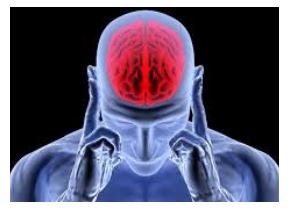Table of Contents


A lengthy study paper on the effects of stress on Meniere’s patients was published on the US National Library of Medicine & National Institute of Health website (PubMed) in February 2014.
Stress is a very important factor with regards to Meniere’s and at the very least it is a contributing trigger to Meniere’s attacks. Only those who have never lived with this condition would argue otherwise.
You can read more on the relationship with stress and Meniere’s here
In the paper ‘The Influence of Psychological Factors in Meniere’s Disease‘ the author comes to the same conclusions that I have maintained for 12 years that it is a vicious cycle. Meniere’s causes stress and stress triggers attacks. The conclusions were reached following study of 26 articles and 33 studies.
The Influence of Psychological Factors in Meniere’s Disease – Study
Here are a few extracts from the lengthy paper (view the full paper through link at the top of the page):
“Many physicians have observed that psychological factors play a significant role in the course of Meniere’s disease (MD), with Meniere’s patients being subject to anxiety and tension states.
However, the question whether MD is caused by psychological factors or whether the psychological manifestation in MD is as a result of the illness is still unresolved.
A vicious circle of interaction seems to exist between the somatic organic symptoms of MD and resultant psychological stress. The frightening attacks of vertigo seem likely to produce and increase the level of anxiety thereby worsening the emotional state and the resultant anxiety provokes various symptoms probably through disorders of the autonomic nervous system occasioned by the increased levels of stress-related hormones.
In MD the frightening attacks of vertigo seem likely to produce and increase the level of anxiety thereby worsening the emotional state and the resultant anxiety provokes various symptoms probably through disorders of the autonomic nervous system occasioned by the increased levels of stress-related hormones.
Hence, a vicious circle of interaction between somatic organic symptoms of MD and resultant psychological stress develops. Understandably, those with predisposing psychological personality characteristics are more likely to suffer more impact of this vicious cycle on their QOL (quality of life) than Meniere’s patients whose personalities are in the normal range.
Conclusion
In MD, there seem to exist a vicious circle of interaction between the somatic symptoms especially vertigo and resultant emotional disturbances, which in turn tend to provoke some other somatic symptoms.
The QOL of the sufferers is severely incapacitated by the illness, especially the psychological well-being, which manifest mainly with anxiety and depression, dominating the physical and environmental disturbances. Worse QOL tends to occur in Meniere’s patients with more severe vertigo symptom.”
Other Studies
It would seem that although stress may not be the definitive cause of Meniere’s “Disease” it can cause some of the symptoms. If you consider that Meniere’s is an idiopathic condition then this seems somewhat contradictory. In another paper from PubMed: ‘Microarray analysis of stress-related gene expression in patients with Ménière’s disease‘ it states:
“All these findings suggested that the distinct group of stress-related genes contributed to the development of vertigo attacks of Ménière’s disease and that stress-related gene expression profiles in peripheral leukocytes can be a predictive and therapeutic tool for episodic vertigo attacks in patients with Ménière’s disease.”
In yet another paper from PubMed titled: ‘The relevance of an elevation in the plasma vasopressin levels to the pathogenesis of Meniere’s attack.‘ the author stated,
“Results suggest that the elevation of plasma vasopressin in the acute phase of Meniere’s disease is therefore related to the pathogenesis of Meniere’s attacks”
In at least some cases it may be a chicken and egg question regarding which comes first the stress or Meniere’s but it is clear that stress is a trigger.
How relevant is Stress in the symptoms of Meniere’s Disease?
Absolutely relevant. Stress is at the very least a trigger and in some people it would seem a root cause. Reducing your non Meniere’s related stress would seem vital in reducing the severity and regularity of Meniere’s symptoms.
If you found this article useful Click here to support Meniere’s Help paypal.me/menieres
Related articles:
By Mike Spencer
Founder of Meniere’s Help
Researcher and author of Managing Meniere’s Disease and
The Need for Balance – Dealing with the Causes of Meniere’s
Help other sufferers:
What are your experiences with stress and Meniere’s. Tell us your experiences in the comments box below or email Mike at meniereshelp@gmail.com
References/Further reading: